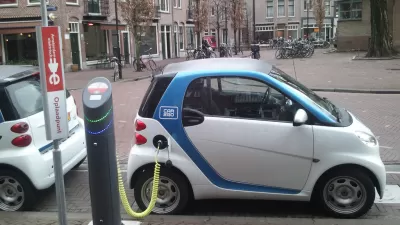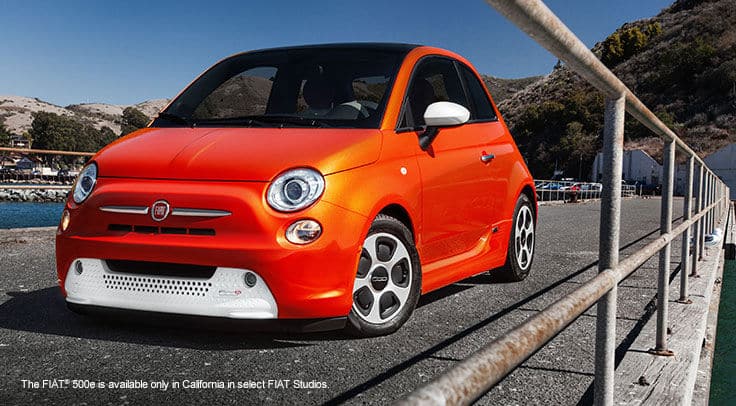Please, don't buy the Fiat 500 E, stated Fiat Chrysler Automobiles CEO Sergio Marchionne during his presentation on a Brookings panel on May 20. It's not because it's a bad car—it's because his company loses $14,000 on every sale.

The loss is not unexpected; it's the amount that is new. It just increased 40% to $14,000, writes Karl Henkel of The Detroit News. Last year we quoted Marchionne when the loss was estimated at $10,000. "Doing that on a large scale would be masochism to the extreme," he said.

Since then, seven other states have joined California in this requirement, according to an Air Resources Board press release last October. Those other states are Connecticut, Maryland, Massachusetts, New York, Oregon, Rhode Island and Vermont.
Can auto companies make money from selling EVs? "Marchionne said Tesla Motors was the only company making money on electric cars and that was because of the higher price point for its Model S sedan," writes Beech.
"Automakers have sold approximately 15,000 (battery-only) electric vehicles (from January) through April, according to the Electric Drive Transportation Association, up about 9 percent compared to the same period in 2013," writes Henkel. The amount doubles when plug-in hybrid-electric vehicles (PHEV) are included, according to InsideEVs (see breakdown of sales of all models).
By comparison, sales of all "automotive purchases will eclipse more than 1.4 million motor vehicles through the 30 days of April," according to Precise Leads.
Marchionne's real message to the Brooking's audience was not so much not to buy his electric car, but toward costly federal mandates. "(H)e would prefer the U.S. Department of Energy simply set targets and let the automakers achieve them in their own way," writes Beech.
Otherwise, he warns, "we'll be back asking ... in Washington for a second bailout because we'll be bankrupt."
FULL STORY: Marchionne: Fiat loses $14K on every electric 500

Maui's Vacation Rental Debate Turns Ugly
Verbal attacks, misinformation campaigns and fistfights plague a high-stakes debate to convert thousands of vacation rentals into long-term housing.

Planetizen Federal Action Tracker
A weekly monitor of how Trump’s orders and actions are impacting planners and planning in America.

San Francisco Suspends Traffic Calming Amidst Record Deaths
Citing “a challenging fiscal landscape,” the city will cease the program on the heels of 42 traffic deaths, including 24 pedestrians.

Defunct Pittsburgh Power Plant to Become Residential Tower
A decommissioned steam heat plant will be redeveloped into almost 100 affordable housing units.

Trump Prompts Restructuring of Transportation Research Board in “Unprecedented Overreach”
The TRB has eliminated more than half of its committees including those focused on climate, equity, and cities.

Amtrak Rolls Out New Orleans to Alabama “Mardi Gras” Train
The new service will operate morning and evening departures between Mobile and New Orleans.
Urban Design for Planners 1: Software Tools
This six-course series explores essential urban design concepts using open source software and equips planners with the tools they need to participate fully in the urban design process.
Planning for Universal Design
Learn the tools for implementing Universal Design in planning regulations.
Heyer Gruel & Associates PA
JM Goldson LLC
Custer County Colorado
City of Camden Redevelopment Agency
City of Astoria
Transportation Research & Education Center (TREC) at Portland State University
Jefferson Parish Government
Camden Redevelopment Agency
City of Claremont


























